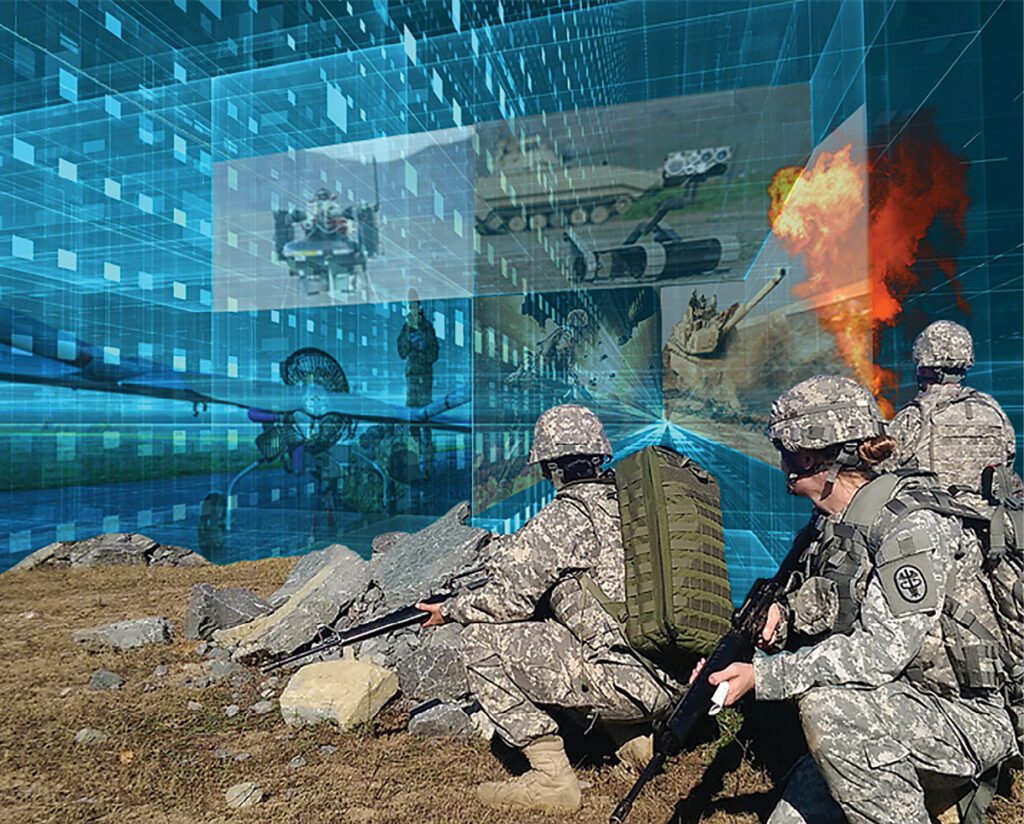Advancements in technology have led to the rise of autonomous warfare, powered by artificial intelligence (AI). This article explores the development and implications of AI-powered military systems. The pursuit of autonomous military systems began with unmanned aerial vehicles (UAVs), which can now operate autonomously thanks to AI advancements. These systems utilize AI algorithms and machine learning techniques to enhance their capabilities and adapt to changing environments. Advantages of AI-powered military systems include enhanced efficiency and precision, as well as the potential to reduce human casualties. However, there are ethical and legal concerns regarding accountability, decision-making, and the potential escalation of technology. Striking a balance between the benefits and risks of autonomous warfare is crucial.
The Rise of Autonomous Warfare: Exploring AI-Powered Military Systems
Introduction
Advancements in technology have revolutionized various sectors, and the realm of warfare is no exception. With the rise of artificial intelligence (AI), autonomous warfare has become a reality. Military systems powered by AI are capable of executing complex tasks without direct human control, which has both advantages and ethical concerns. In this article, we will explore the development and implications of AI-powered military systems.
Development of AI-Powered Military Systems
The pursuit of autonomous military systems began several decades ago, with initial developments focused on unmanned aerial vehicles (UAVs) or drones. These systems were initially remotely piloted, but with advancements in AI, drones can now operate autonomously, making real-time decisions based on collected data.
AI algorithms and machine learning techniques are at the heart of these military systems. Through continuous exposure to large amounts of data and iterative learning, AI-powered military systems can enhance their capabilities, adapt to changing environments, and even learn from past mistakes.
Advantages of AI-Powered Military Systems
Enhanced Efficiency and Precision
One of the key advantages of AI-powered military systems is their ability to perform tasks with enhanced efficiency and precision. For example, autonomous drones can conduct surveillance missions for extended periods without fatigue, allowing for comprehensive monitoring of vulnerable areas.
Furthermore, AI-powered military systems can analyze vast amounts of sensor data in real-time, enabling them to identify potential threats and react faster than human operators. This reduces response time and increases the chances of successful defensive or offensive operations.
Reduced Human Casualties
Autonomous military systems also have the potential to reduce human casualties on the battlefield. By removing human operators from harm’s way, AI-powered systems can execute dangerous missions, such as battlefield reconnaissance, disarming explosive devices, or engaging in combat, without risking the lives of soldiers.
Moreover, AI-powered military systems can make split-second decisions based on algorithmic calculations and predicted outcomes, potentially minimizing civilian casualties by avoiding collateral damage or distinguishing between combatants and non-combatants.
Ethical and Legal Concerns
Accountability and Decision-Making
One of the main ethical concerns surrounding AI-powered military systems is the issue of accountability. Who should be held responsible if such a system makes a mistake or causes unintended harm? Unlike humans, AI systems cannot be held morally accountable for their actions, which poses a challenge in determining liability in case of misconduct.
Additionally, autonomous military systems have the ability to make life-or-death decisions independently, raising questions about the limits of human oversight and control. Ensuring that these systems are programmed with appropriate ethical guidelines and ensuring transparency in their decision-making processes is essential.
Escalation and Proliferation of Technology
Another concern is the potential escalation and proliferation of AI-powered military systems. With the advancement of technology, there is a risk that autonomous systems could be used for offensive purposes, leading to an arms race and loss of human control in warfare. This raises the need for international regulations and agreements to prevent the misuse of AI in the military domain.
Conclusion
The rise of AI-powered military systems has brought about significant advancements in warfare capabilities. From enhanced efficiency and precision to a potential reduction in human casualties, these systems offer numerous advantages. However, ethical concerns surrounding accountability, decision-making, and the proliferation of technology must be addressed to ensure responsible and controlled use of these powerful tools. As AI continues to evolve, it is crucial to strike a balance between the potential benefits and potential risks posed by autonomous warfare.
